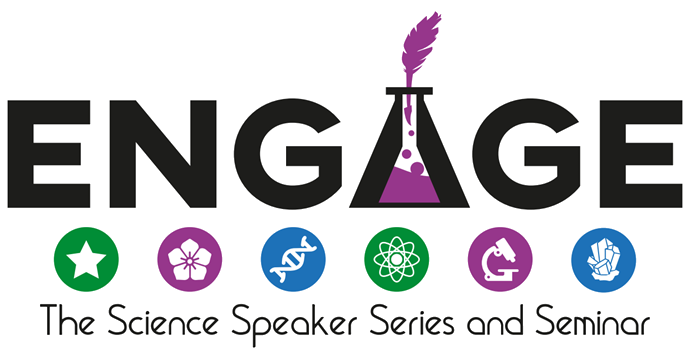Makenzie Patarino is a PhD student in neuroscience at UW working with Dr. Abbie Schindler at the VA Hospital Puget Sound. Her research aims to characterize the biological and behavioral effects of chronic alcohol use following blast trauma.
Read MoreBy Ryan McHugh
Read MoreBy Ashley Person
Read MoreBy Laura Baquero Galvis
Read MoreKacey Rosenthal is a PhD candidate in the Department of Pharmacology at the University of Washington. She studies an aggressive form of breast cancer so that doctors can understand better how to stop it from growing and spreading.
Read MoreSam Fernandes is a part-time biology grad student and a full-time cowgirl. She works in the Rasmussen lab at UW, studying how our biggest organ, the skin, protects us from the elements and lets us feel our world. Sam’s work focuses on how some organisms harness the awesome power of regeneration to give their skin cells unlimited Heath Power (HP). She hopes this work can help those experiencing nerve damage and restore their sense of touch.
Read MorePreetham Venkatesh is a Biochemistry graduate student at David Baker’s lab at the University of Washington. His research focuses on designing novel proteins that can interact with proteins in the human body.
Read MoreBy Gabby Commisso
Read MoreAngelina Zhang is a chemical biology graduate student at the University of Washington, where she works in the Maly Lab. Her research focuses on making and using small molecule probes to study protein-protein interactions in cancer signaling pathways and how protein-drug interactions disrupt those pathways. She aims to use these findings to find new druggable sites in proteins.
Read MoreAmy Bounds is a Biochemistry PhD graduate student at the University of Washington where she works in Suzanne Hoppins’ lab. The Hoppins’ lab studies how the mitochondria change shape to complete different tasks in the cell. Amy’s research focuses on understanding the function of protein that may be involved in regulating how and when the mitochondria change their shape.
Read MoreBy Sophie Hurwitz
Read MoreBy Leslie Coney
Read MoreBy Becca Blynn
Read MoreBy Kelsey Woodruff
Read MoreAriana Frey is a bioengineering graduate student at the University of Washington, where she is creating tiny, simplified human hearts, shaped like macaroni pasta, that include both a blood vessel and heart muscle cells. Her goal is to use these tiny hearts to further study how and when endothelial cell dysfunction leads to heart disease, and how this function can be recovered.
Read MoreCecily Rosenbaum is a graduate student in Physical Chemistry in the University of Washington's Department of Chemistry. Her research focuses on identifying materials that can capture the light that solar panels can't, and use it to produce light that can be used by the panels.
Read MoreEmma Lederer is a second-year immunology graduate student at the University of Washington and researcher in the Dudakov Lab at Fred Hutchinson Cancer Research Center. She works to develop therapeutics to improve thymic function as we age to decrease our chances of cancer, autoimmunity, and infection.
Read MoreEthan Mickelson graduated from Indiana University in 2022 with his degree in biochemistry, where he researched viral insulin-like peptides for diabetes treatment. Ethan is currently a 2nd year student in UW’s Bioengineering PhD program. His current research operates at the intersection of polymer chemistry and emergency medicine. Ethan aims to develop new polymer-based therapies for treating trauma victims with severe blood loss and impaired clot formation.
Read MoreJames Yoon is an atmospheric chemist who is fascinated by how plants can affect the atmosphere and the air we breathe through the gases they emit. To study this question, he uses computer simulations and satellites to better represent these gases and the chemistry they undergo in the atmosphere. Through this work, he hopes to better describe how biology and air quality interact.
Read MoreLarissa Robinson-Cooper uses antibodies to make the brain light up! She does this to determine how markers of Alzheimer’s disease can increase the likelihood of seizures.
Read More